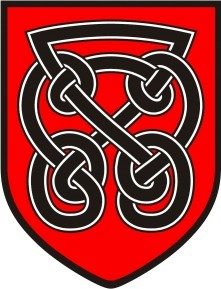| | TPS1 | TPS2 | TPS3 | TPS4 | TPS5 | TPS6 |
| Research | Can identify relevant images and add relevant comments | Can identify and describe the topic and how your images work | Can describe the topic and quote your resources of information and use at least one source well. Identify how your research can or will be used. | Can explain the topic using multiple sources of information and relevant examples for your end user’s needs. Describe how your research can or will be used. | Can analyse a range of sources about the topic and analyse these against your end user’s needs using examples. Explain how your research can or will be used. | Can evaluate a wide range of appropriate sources about the topic and evaluate these against your end user’s needs. Evaluate and compare how your research can or will be used. |
| Design and Communication | Can produce some simple ideas of recognized products. You have tried to label your ideas. | Can communicate a range of design ideas in different ways. Can use words and colour so others can identify your designs. | Can communicate a range of design ideas clearly and can annotate designs using research gathered. Can apply colour neatly and appropriately. | Can develop a range of design ideas, showing different views and techniques using research gathered. Can communicate your designs with annotation clearly and render with some tone. | Can develop a wide range of original and creative design ideas and communicate them taking into consideration the end users. Can use a range of techniques to communicate your ideas with detailed annotation. Can render with appropriate tone. | Can create highly imaginative design ideas and fully consider the user’s needs. Can use a range of media and accurate techniques to evaluate all aspects of your designs including annotation against the specification. Can render and shape accurately. |
| Planning | Can list the steps in the plan mostly in the correct order. | Can identify some tools/equipment/materials that will be needed in the correct order. | Can describe each stage of the plan of the making in the correct order with most tools/equipment/materials. | Can explain each stage of the plan of making including a description, tools, timings and a sketch of each stage. | Can explain each stage in detail of the plan of making, including quality control measures and health and safety. | Can evaluate each stage of the plan of making in detail including alternative methods. Can consider how the product might be manufactured in the real world. |
| Making | Can use tools and materials/ingredients to combine parts with independence, with help where needed. | Can use tools and materials with some accuracy to cut and shape materials/ingredients safely. | Can use tools and materials/ingredients with some accuracy paying attention to quality of finish and function. | Can use tools and materials/ingredients with some precision. Can work with a range of tools and equipment to produce a good quality finish on the product. | Can use tools and materials/ingredients with precision and consider all properties of materials used to produce a high-quality finish on the product. | Can use a range of tools and materials/ingredients with high precision, applying quality control checks to produce a skillful product with minimal errors. |
| Evaluating | Can communicate simply how the product works and suggest simple improvements. | Can describe what went well with the product and suggest improvements. | Can describe what went well with the product considering how the product can be used and suggest multiple improvements to overcome problems. | Can explain what went well with the product considering people’s feedback. Can suggest improvements based on comments from others. Can consider the user’s needs. | Can analyse the positive and negative aspects of the product against the specification whilst considering the user’s needs in detail. | Can Evaluate all aspects of the product against the specification and how it will be used. Can consider social. Moral ad sustainability issues. |
